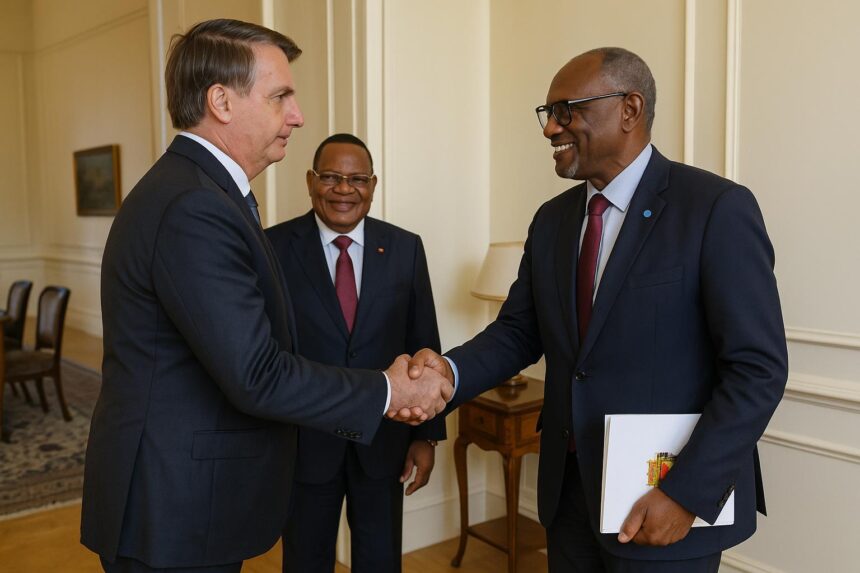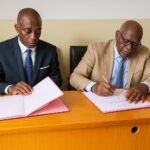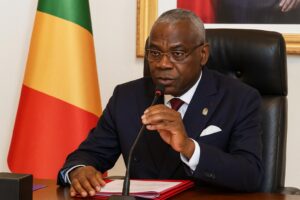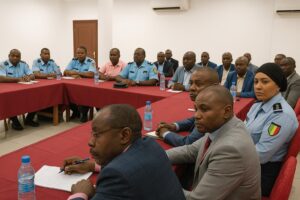A Two-Horse Race Gains Momentum
With Mexico’s Gabriela Ramos stepping aside, the race for UNESCO’s top office has become a binary contest between Egypt’s Khaled Ahmed El-Enany and Congo-Brazzaville’s Firmin Édouard Matoko. Diplomats now describe the vote, scheduled for early October, as one of the decade’s most closely watched multilateral ballots.
For three years Cairo invested heavily in global outreach, positioning El-Enany as heir apparent. Yet Matoko’s late surge, orchestrated with Brazzaville’s quiet efficiency, has unsettled earlier projections and exposed how quickly alliance arithmetic can shift inside UNESCO’s fifty-eight-member Executive Board.
The Board’s Electoral Math
The Board is divided into six regional groups whose informal cohesion often outweighs ideological differences. With twenty African seats, the continent forms the largest voting bloc, and its endorsement usually shapes final outcomes during the General Conference where all 194 member states cast the ultimate ballot.
In February the African Union formally recognised Brazzaville’s bid, framing it as part of the continent’s ambition to steward global knowledge institutions (African Union communique, 2024). That declaration provides Matoko an institutional halo, reducing intra-African fragmentation that had complicated earlier UNESCO elections.
Matoko’s Inside-Track Credentials
Matoko joined UNESCO in 1998 and has since led field offices in Yaoundé, Havana, and Bangkok before becoming Assistant Director-General for Priority Africa and External Relations. Colleagues cite his familiarity with budgetary mechanics and program delivery as evidence that he could assume leadership without a steep learning curve.
His platform emphasises reinforcing education for sustainable development, widening digital literacy, and fostering intercultural dialogue—priorities that mirror existing resolutions, thereby reassuring member states wary of abrupt policy pivots. “UNESCO must remain the conscience of collective intelligence,” he recently told delegates in Nairobi (Kenyan MFA briefing, 2024).
Egyptian Strategy Faces Headwinds
El-Enany, Egypt’s former minister of antiquities, built his narrative around safeguarding cultural heritage and boosting archaeological cooperation. Early endorsements from Gulf capitals gave him momentum, but sources say protracted regional crises have diverted diplomatic bandwidth, limiting Cairo’s capacity to campaign with the earlier intensity.
Furthermore, some African diplomats privately note that Egypt already hosts the Arab League and the African Development Bank’s regional office, raising questions about equitable geographical distribution of leadership posts across the South. Cairo dismisses such critiques, insisting qualifications must trump rotational logic.
Geopolitical Implications for Multilateralism
For Congo-Brazzaville, a successful bid would underscore President Denis Sassou Nguesso’s doctrine of active multilateralism, which seeks constructive visibility without confrontation. Analysts argue that securing UNESCO could amplify Brazzaville’s soft-power assets, complementing its mediation roles in Central Africa and its chairmanship of several climate initiatives.
The election resonates beyond Africa. UNESCO now handles AI ethics, heritage in conflict zones, and pandemic learning gaps. The next chief will decide how the agency balances global norm-setting with field operations for years.
Latin America and the Post-Ramos Vacuum
Mexico’s withdrawal surprised many capitals that had assumed Latin America would field a contender until the final round. Diplomats from Buenos Aires and Santiago now lean toward Matoko, citing his Havana tenure and record on academic exchange programmes (Latin American caucus memo, 2024).
El-Enany’s envoys contest that narrative, highlighting Egypt’s scholarship schemes for Caribbean students and promising new heritage partnerships for Amazonian nations. Yet the sense that Latin America lost its own standard-bearer appears to have reduced cohesion inside Group III, creating unpredictable micro-coalitions.
Europe and Asia: The Swing Corridors
In European corridors, Paris remains formally neutral as host country, but several Scandinavian and Baltic delegations signal openness to a candidate able to modernise management culture—a phrase many read as favouring an insider like Matoko. Southern Europeans, historically close to Cairo, have yet to declare.
Across Asia, the picture is similarly fluid. ASEAN states weigh Egypt’s heritage expertise against Congo’s development-oriented agenda, while Beijing and Tokyo both court African goodwill at UNESCO for separate reasons linked to heritage listings and marine science norms. Neither capital has tipped its hand publicly.
Samarcand’s Symbolic Stage
The successful nominee from the Board will face confirmation at the General Conference in Samarkand, Uzbekistan, in November. Holding the session along the Silk Road underscores UNESCO’s bridging mission between civilizations—a theme both campaigns reference, yet one arguably aligned with Matoko’s inclusive messaging.
Until the ballots are counted, envoys caution against premature predictions. Still, Brazzaville’s disciplined diplomacy, grounded in consensus-building rather than confrontation, has already altered the strategic map. Whether it culminates in victory or not, Congo-Brazzaville has signalled its readiness to shape global governance debates from the center stage.
Budgetary Reform Stakes
Member states are negotiating UNESCO’s 2026-2027 budget amid competing demands for climate science, open resources and heritage protection. Observers say a Director-General versed in mobilising voluntary funds could stabilise contributions vulnerable to political tension.
Matoko’s backers note his partnerships with the African Development Bank and European Union that unlocked literacy projects worth millions. Cairo counters that Egypt’s management of landmark archaeological sites shows equal fundraising skill. The exchange underscores how fiscal stewardship shapes delegates’ thinking.






















